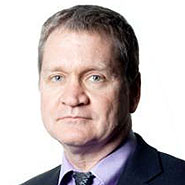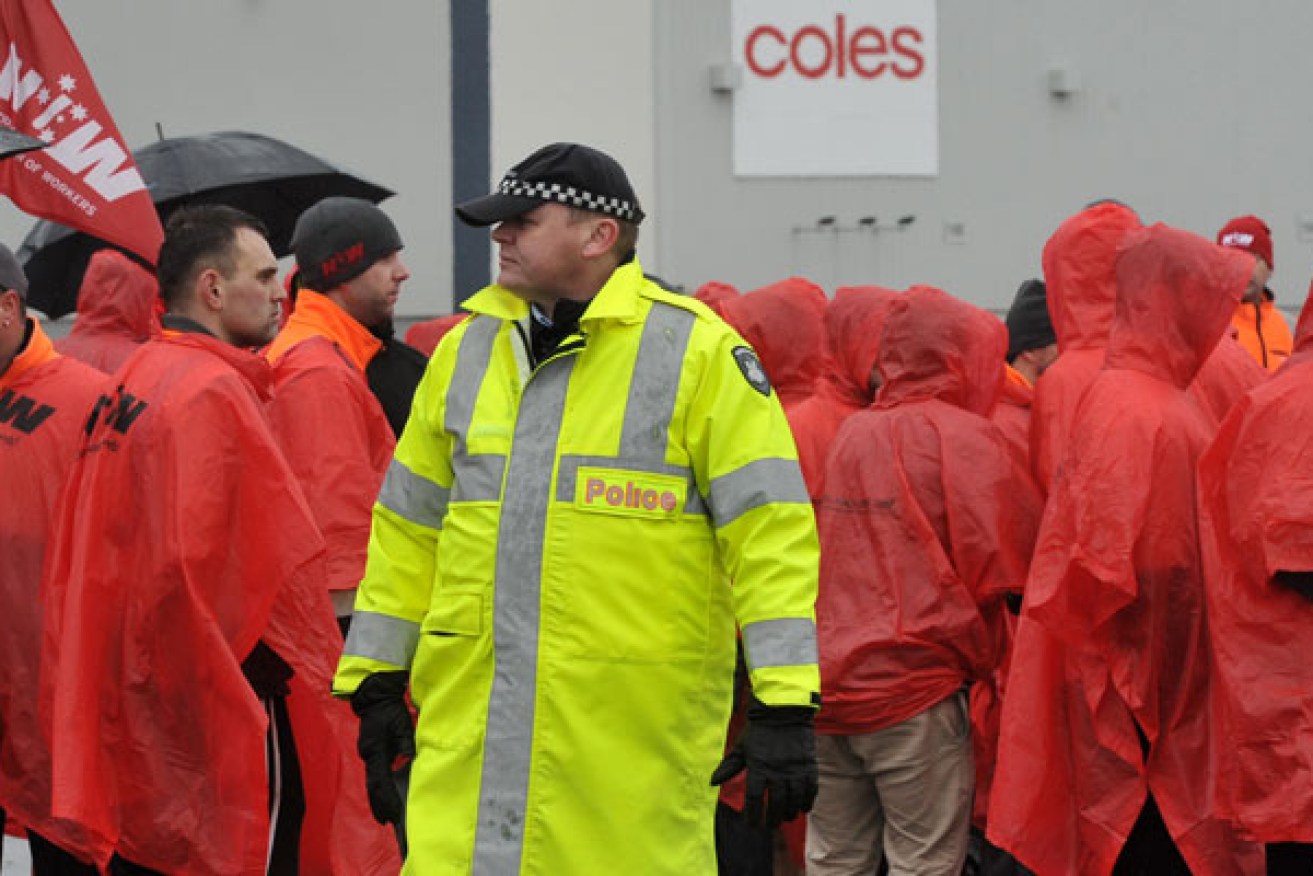How cutting penalty rates could provoke voters


AAP
The chairman of the Productivity Commission Peter Harris tried not to startle the horses when he released this week’s big report on Australia’s workplace laws.
Mr Harris argued that the stables needed repair, but they did not need to be demolished and rebuilt.
“Changes to the workplace relations framework have to recognise that it’s not just about the economics,” he said. “There are ethical and community norms about the way in which a country treats its employees.”
• Australian businessman’s bizarre arrest in Indonesia
• Banks offering freebies to win new loan customers
• Australian experts examine possible MH370 wing
However, there’s a big disconnect between these words and the recommendations in the PC’s 1000-page report.
Take strikes, for example. The report rightly says that industrial disputes “do not appear to be a major problem” in Australia’s workplace relations framework.
“The measured prevalence of industrial action has declined substantially over the past three decades, and has remained relatively low in recent years,” it says.

Trimming the weekend pay packet of cafe staff has been proposed. Photo: Shutterstock
Nonetheless, the PC goes on to recommend changes that would make it harder to take legally-protected strike action and easier for the employer to end it on the grounds of it causing economic harm.
Yet the point of strikes is to exert pressure on an employer to reach a better deal. To paraphrase former Prime Minister Paul Keating, the shoe is meant to pinch.
As the PC report notes: “The premise of any Workplace Relations system is that, absent specific workplace legislation and oversight, employees would particularly suffer from unequal bargaining power.”
Many argue there are exceptions to this general rule about unequal bargaining power – like the CFMEU in high-rise construction and the various colleges of medical specialists.
There are further disconnects within the PC report, which says that Australia’s labour market performance and flexibility is “relatively good by global standards and many of the concerns that pervaded historical arrangements have now abated”.
It further notes the now-deflated mining boom did not lead to a “wages breakout” in other parts of the economy, that enterprise bargaining “generally works well” while posing problems for small business, and that minimum wages are justified.
Yet, it recommended many changes, which include cutting the Sunday penalty rates of workers in cafes, restaurants and hotels.
The Abbott government has sought to calm things down, with Employment Minister Eric Abetz, stressing that setting penalty rates would be left up to the “independent umpire”, the Fair Work Commission.

Strike action would be more difficult under the proposed changes. Photo: AAP
Maybe so, but the PC report suggests that the members of the Fair Work Commission should no longer be quasi-judicial figures who are appointed with legal tenure until they reach retirement age.
The report argues that FWC members should be appointed for five-year terms with more expertise in economics than the law. They would be appointed for five-year terms, and only renewable for a further five years after an independent performance review.
What was PC chairman Harris saying about this being wider than economics?
Now, both sides of politics appoint kindred spirits to the Commission, but the PC’s suggested system would allow for wholesale changes by the government of the day and rapid replacement of members who make “unpopular” decisions.
The report’s biggest potential change is to introduce so-called “enterprise contracts” which would allow an employer to vary an award for entire classes or groups of employees.
The PC insists there would be adequate safeguards for employees, but it could be offered as a condition of employment, with no ballot required for existing employees and with no union involvement without employer consent.
On this point, the PC is naïve on the way bargaining work in the workplace. The employer would be offering the template that it wanted to a group of workers, not one tailored to what an individual employee wanted. When unions do this, it’s called pattern bargaining.
Having said that, I’m not suggesting that improvement cannot be made to Australia’s workplace system. But the old tripartite grouping of government, employers and unions are too fixated on black-letter law rather than building better and more productive workplaces built on give-and-take.
The PC report will spark a scare campaign by Labor and the unions that will run until the next federal election which is expected in 2016.
It will be a political version of hide-and-seek, or maybe whack-a-mole.
This will involve the Coalition saying as little as possible while the labour movement talks up the dangers. The Coalition will have to bite their lip because they want to make changes to the IR system – as does their business support base – but they don’t want to startle the horses and lose the next election.
Perhaps the strangest aspects of the PC’s report is that it criticises the Fair Work Commission by being weighed down by the history of Australia’s unique IR system, looking backwards rather than forward.
Yet, in another disconnect, the Productivity Commission’s report makes no mention of the “sharing economy” of the future. As The Australian Financial Review has noted, there is no mention of Uber, airbnb, or other peer-to-peer businesses.
Finally, there is the underlying political reality for the Abbott government. Around four million employed people – more than one in three in the workforce – work at least a Saturday or Sunday each week.
And nearly all of these weekend workers are voters.








